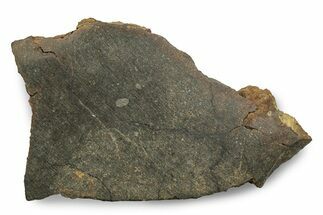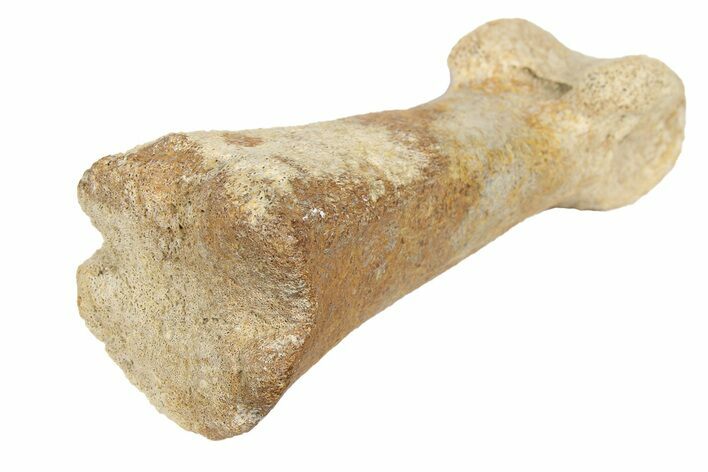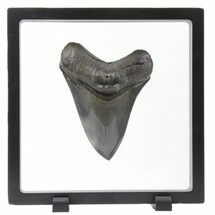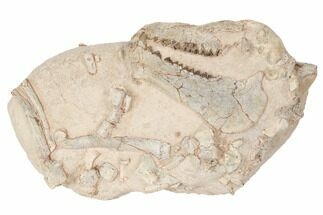This Specimen has been sold.
3.6" Pliocene Camel (Camelops?) Fossil Toe Bone - Kansas
This is a 3.6" long proximal phalanx (toe bone) from a pliocene, camel (Camelops?) which was found in Sedgewick County, Kansas. This genus of ancient camelids was prevalent across North America, roughly 2.5 to 5 million years ago.
Camelops was an ancestor to modern camels and llamas, sharing similar features with both animals. These camelids were quite large and roamed the North American continent before their ultimate extinction. While the cause of their disappearance is unknown, some scientists estimate early humans may have played a role.
This specimen comes with an acrylic display stand for exceptional presentation.
Camelops was an ancestor to modern camels and llamas, sharing similar features with both animals. These camelids were quite large and roamed the North American continent before their ultimate extinction. While the cause of their disappearance is unknown, some scientists estimate early humans may have played a role.
This specimen comes with an acrylic display stand for exceptional presentation.
SPECIES
Camelops sp.?
LOCATION
Sedgewick County, Kansas
SIZE
3.6" long
CATEGORY
SUB CATEGORY
ITEM
#187514
We guarantee the authenticity of all of our specimens.
 Reviews
Reviews













